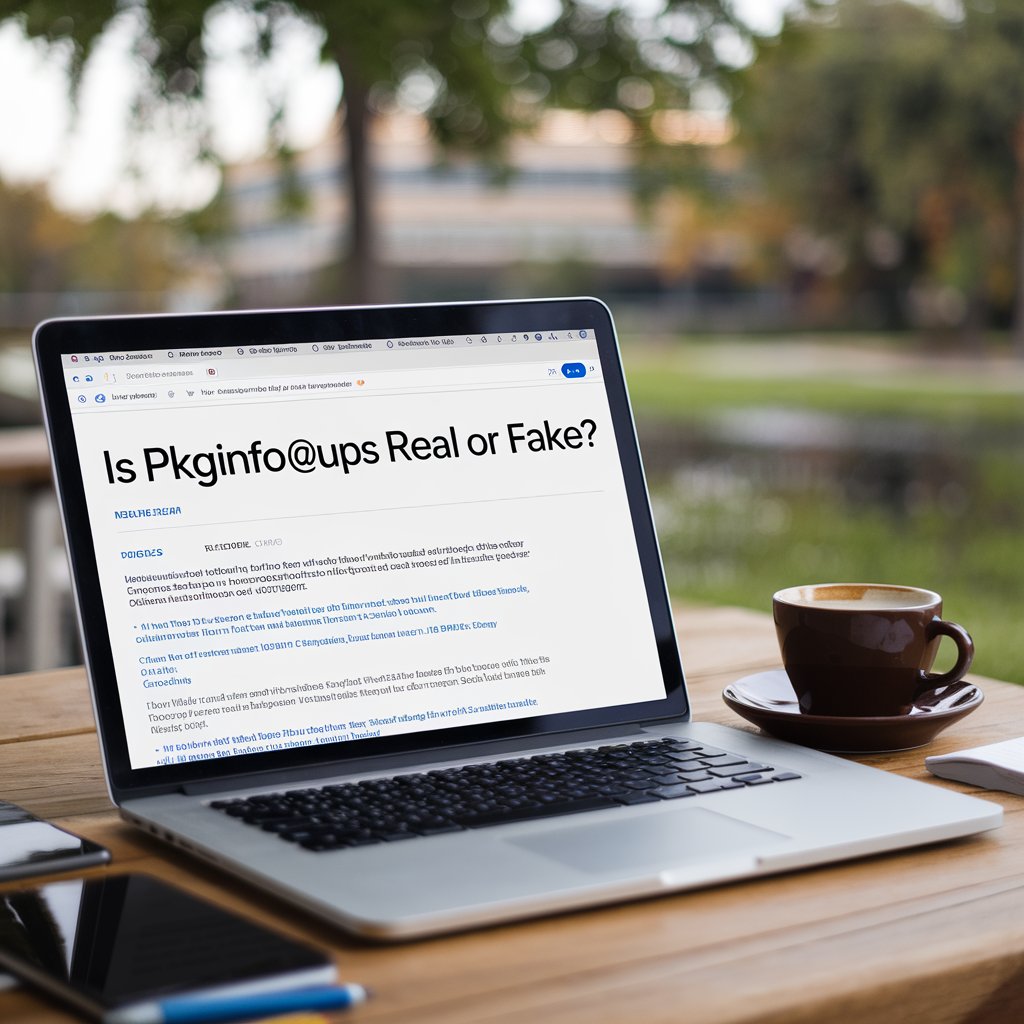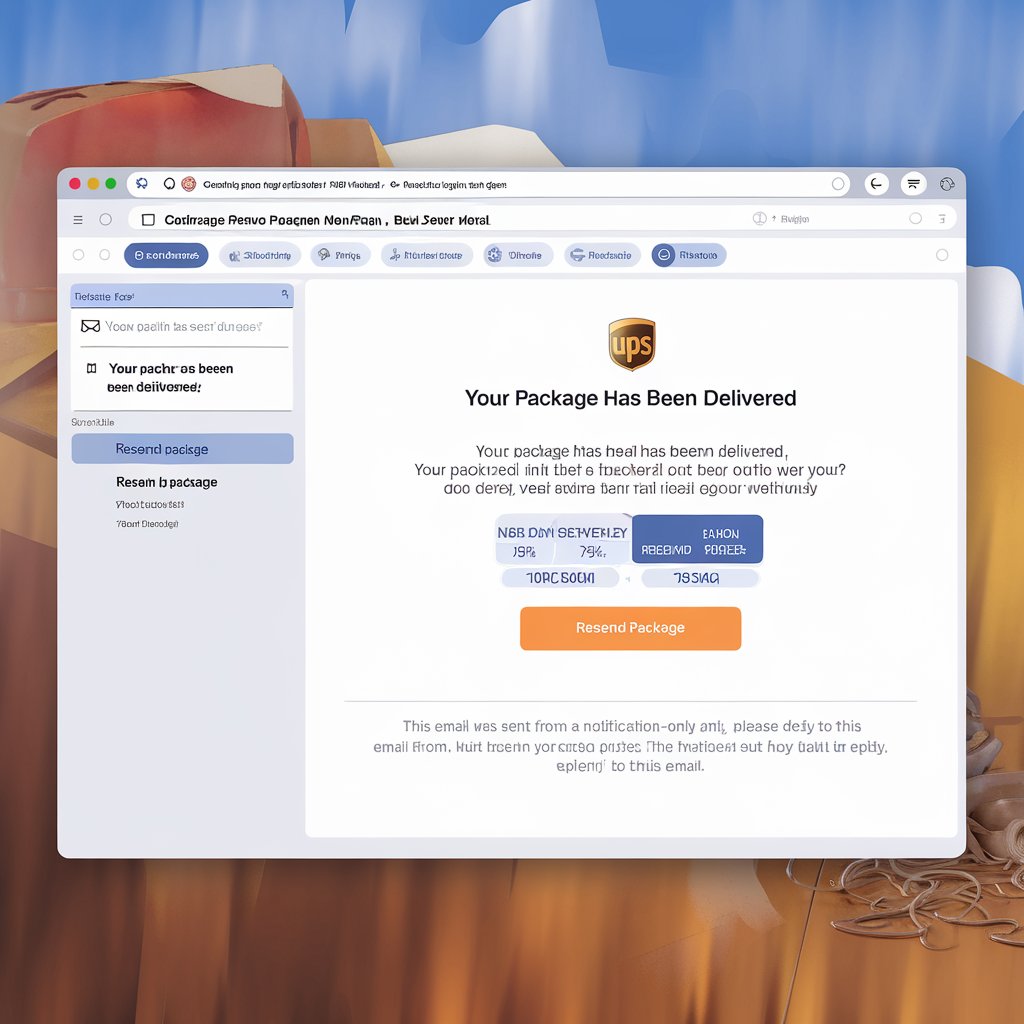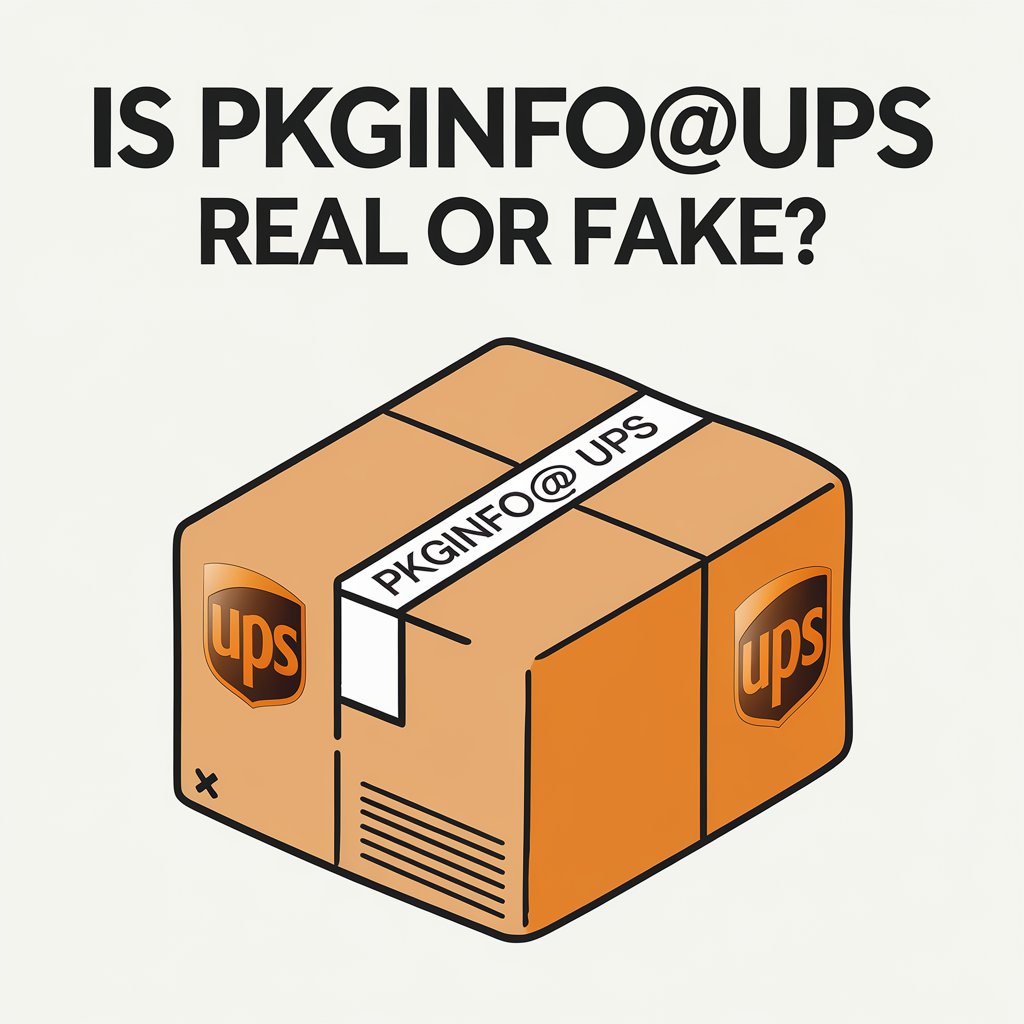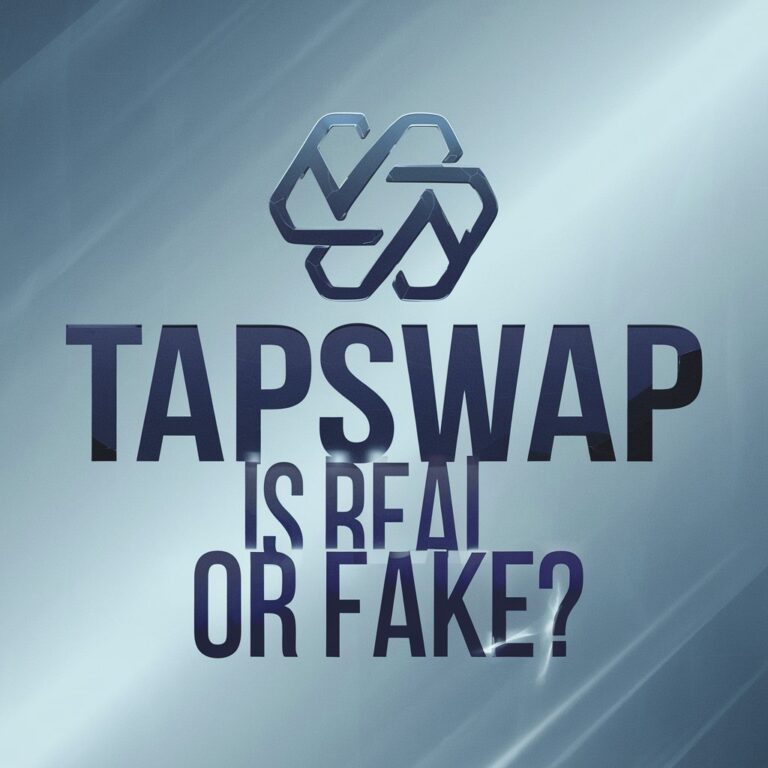What is pkginfo@ups.com?
The email address pkginfo@ups.com appears to be associated with UPS package information, and it’s typically used to send notifications related to deliveries, tracking updates, or delivery issues. However, scammers often use email addresses that look similar to genuine ones, which can make it difficult to know whether emails from pkginfo@ups.com are real or fake.

While UPS does send legitimate notifications, it’s essential to distinguish between genuine UPS communications and phishing attempts. Many users have reported receiving emails from this address that seemed suspicious, which has raised questions about its authenticity.
How Does pkginfo@ups.com Work?
When UPS sends out legitimate email notifications, the emails contain specific information related to your package, such as tracking numbers, estimated delivery dates, and the sender’s details. Here’s what a genuine UPS notification typically includes:
- Clear Tracking Information: A real UPS email will always include a tracking number that can be verified directly on the UPS website.
- Professional Language: Legitimate UPS communications use professional and clear language without grammatical errors.
- No Request for Sensitive Information: UPS does not ask for sensitive personal information, such as passwords or credit card details, in email communications.
- Links to the Official Website: Any links provided will direct you to the official UPS website, not a third-party or strange domain.
Emails from pkginfo@ups.com that do not follow these guidelines may be part of a phishing scam.
pkginfo@ups.com: Real or Fake?
Given the rise in phishing scams, it’s important to verify if pkginfo@ups.com emails are real or fake. Here are some indicators that an email from this address might be fake:

- Unusual Requests: If the email asks for personal information, payment, or password confirmation, it’s likely a scam. UPS typically does not require this information through email.
- Suspicious Links: Hover over links in the email without clicking them. If the URL doesn’t go to an official UPS domain (like ups.com), avoid clicking.
- Generic Greetings: Emails from scammers often use generic greetings like “Dear Customer” instead of your name, which could be a red flag.
- Poor Grammar or Spelling: Scammers often make grammatical errors or use awkward language, which is uncommon in official UPS emails.
To confirm the authenticity of a UPS email, visit the UPS website directly and enter your tracking number. Avoid clicking on links or downloading attachments from suspicious emails.
User Ratings and Reviews of pkginfo@ups.com Emails
Many users have shared their experiences with emails from pkginfo@ups.com, with mixed reviews on whether they received legitimate or scam communications.
- Platform A: ⭐ 2.5/5 – “Received an email that claimed to be from pkginfo@ups.com, but it had a strange link. I didn’t click it, and later found out it was a phishing attempt.”
- Platform B: ⭐ 4/5 – “The email looked genuine and had my correct tracking number. I checked with UPS directly, and it turned out to be legitimate.”
- Platform C: ⭐ 1/5 – “I keep receiving fake emails from addresses similar to pkginfo@ups.com. They’re asking for payment to release my package.”
These experiences highlight the importance of verifying email content and authenticity before taking action.
Top 5 Authentic Alternatives to pkginfo@ups.com for Package Tracking
If you’re concerned about suspicious UPS emails, there are several trusted alternatives and methods for tracking packages and receiving updates.
1. UPS My Choice®
UPS My Choice® is an official service that lets users track and manage deliveries. By signing up, you can receive direct notifications, set delivery preferences, and avoid relying on email notifications alone.
2. UPS Mobile App
The official UPS mobile app is a safe way to track your packages. Available on iOS and Android, the app provides real-time tracking, notifications, and direct communication with UPS.
3. Official UPS Website Tracking
Go to the official UPS website (www.ups.com) and enter your tracking number manually. This method ensures you’re receiving accurate information directly from UPS.
4. Text Notifications
UPS also offers text-based notifications. By opting in, you can receive secure SMS updates about your package status, which reduces the risk of email phishing.
5. Amazon and Other Retailer Tracking Services
If you’re expecting a package from a retailer like Amazon, use their internal tracking services. Amazon, for example, provides package updates through their app, which helps to avoid suspicious third-party notifications.
Conclusion
Emails from pkginfo@ups.com may look like genuine UPS communications, but the presence of scams using similar addresses makes it crucial to verify their authenticity. By following security best practices, such as checking tracking numbers directly on the UPS website, avoiding unsolicited link clicks, and being cautious with personal information, you can protect yourself from phishing attempts. Alternatives like UPS My Choice® and the UPS app provide additional secure methods for tracking packages without relying on potentially fraudulent emails.
Understanding the signs of a fake email can help you navigate digital communications safely. When in doubt, contact UPS customer service to confirm any suspicious notifications and ensure you’re always interacting with verified sources.




Leave a Comment